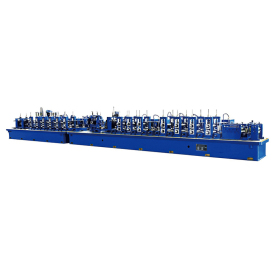In the world of metalworking, annealing is a crucial process that involves heating a material to a specific temperature, holding it at that temperature for a certain amount of time, and then gradually cooling it down. This process is used to improve the material’s properties, such as reducing hardness, increasing ductility, and removing internal stresses.
While annealing can be done manually, using an annealing machine can offer several advantages in terms of efficiency, consistency, and overall quality of the finished product. These machines are specifically designed to heat and cool materials in a controlled manner, ensuring that the annealing process is carried out accurately and reliably every time.
One of the key benefits of using an annealing machine is its ability to provide precise temperature control. With advanced temperature sensors and heating elements, these machines can heat materials to exact temperatures and maintain them at those temperatures for a specified duration. This level of precision is essential for achieving the desired metallurgical properties in the material being annealed.

The Importance of Using an Annealing Machine for Metalworking Processes

The Importance of Using an Annealing Machine for Metalworking Processes
In addition to temperature control, annealing machines also offer consistent and uniform heating and cooling processes. By using circulating air or other heat transfer mechanisms, these machines can ensure that the material is heated and cooled evenly throughout, preventing any localized overheating or underheating. This uniformity is critical for achieving a consistent material structure and properties after annealing.

The Importance of Using an Annealing Machine for Metalworking Processes
Furthermore, using an annealing machine can help increase the efficiency of the overall production process. By automating the annealing process, operators can save time and labor compared to manual annealing methods. This allows for higher throughput and productivity, ultimately leading to cost savings and increased profitability for metalworking businesses.
Another advantage of using an annealing machine is its ability to accommodate a wide range of materials and part sizes. These machines are designed to handle various types of metals, as well as parts of different shapes and sizes. This flexibility makes them suitable for a diverse range of metalworking applications, from small precision components to large industrial parts.
Overall, the use of an annealing machine is crucial for ensuring the quality, consistency, and efficiency of the annealing process in metalworking. These machines offer precise temperature control, uniform heating and cooling, increased productivity, and flexibility in handling different materials and parts. By investing in an annealing machine, metalworking businesses can enhance their operations and deliver high-quality products to their customers.Spare Parts Kit for Tube Mills



